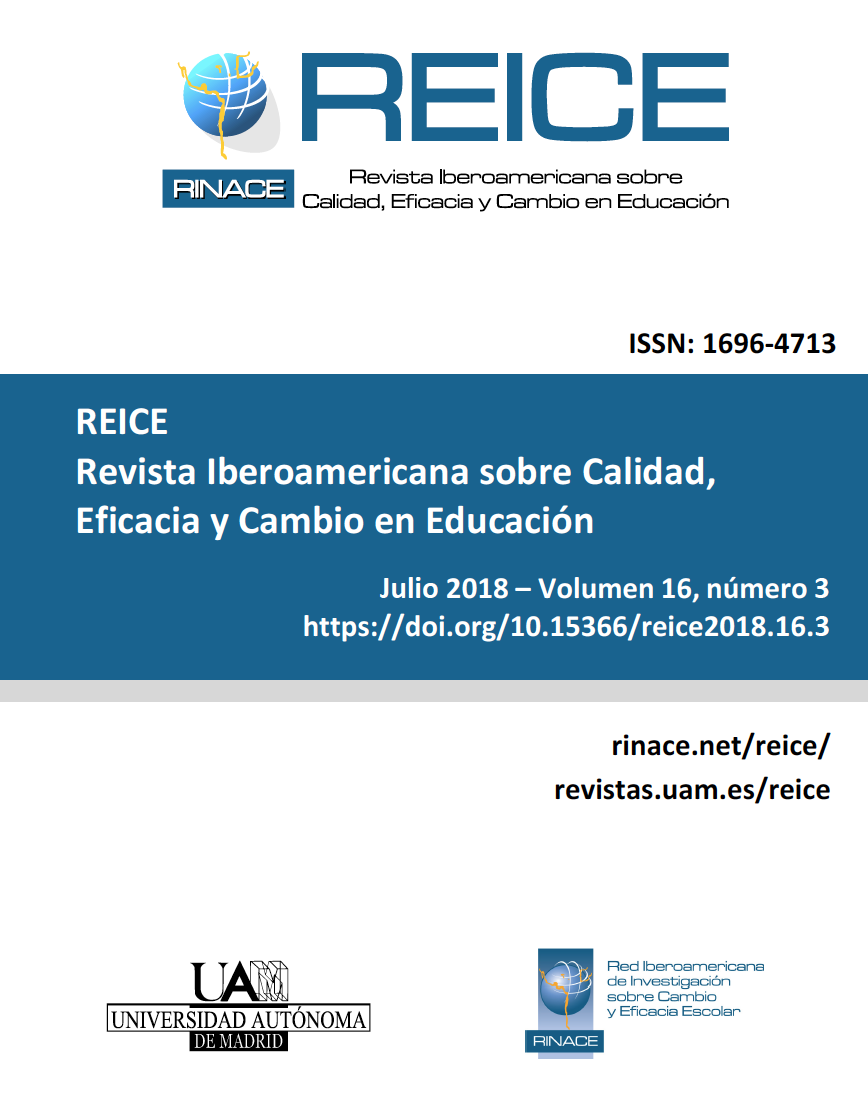Keywords:
Evaluation, Teachers, Students, Higher education.Abstract
The purpose of this paper is to contribute to a better understanding of the process of evaluation of teaching performance in the university context, evidencing the ineffectiveness and poor validity of the questionnaire as a mechanism for the improvement of higher education. The paper analyzes the perspectives of undergraduate students about a questionnaire with which they periodically assess the performance of their professors, to judge their relevance and usefulness as an evaluation tool. It is a qualitative research through the case study modality. The case was represented by the Xochimilco and Cuajimalpa Units of the Autonomous Metropolitan University (uam). The theoretical perspective of teacher evaluation is also placed in a framework of qualitative and comprehensive evaluation. The results are grouped into three blocks referring to the teacher evaluation questionnaire that the students answer: 1) student opinions on the questionnaire, 2) uses of the results of the teacher evaluation, and 3) proposal to evaluate the teaching performance. Among the conclusions, it is emphasized that the evaluation process is associated in a priority way with the granting of economic stimuli to teachers and tangentially with the improvement of the quality of teaching. This situation disagrees with a very extended vision that links the results of the teacher evaluation with the improvement of education.
Downloads
References
Arbesú, M. I. y Comas, O. (2016). Representaciones sociales estudiantiles y evaluación docente. Reencuentro. Análisis de Problemas Universitarios, 71(27), 123-136.
Arbesú, M. I. y García, J. M. (2017). La evaluación docente en jaque: La visión de los funcionarios universitarios. Revista Iberoamericana de Evaluación Educativa, 10(2), 171-185. https://doi.org/10.15366/riee2017.10.2.009
Comas, O. y Lastra, R. (2010). Institucionalización y programas de estímulo económico a profesores universitarios en México: Un análisis por intersticios. Revista de la Educación Superior, 39(155), 81-98.
Cordero, G. y González, C. (2016). Análisis del modelo de evaluación del desempeño docente en el marco de la reforma educativa mexicana. Archivos Analíticos de Políticas Educativas, 24(46), art 5. https://doi.org/10.14507/epaa.v24.2242
Cordero, G., Luna, E. y Patiño, N. (2013). La evaluación docente en educación básica en México: Panorama y agenda pendiente. Sinéctica, 41, 7-28.
Cuevas, Y. y Moreno, T. (2016). Políticas de evaluación docente de la OCDE: La experiencia de la educación básica en México. Archivos Analíticos de Políticas Educativas, 24(120), art 3. http://dx.doi.org/10.14507/epaa.24.2283
Darling-Hammond, L. (2013). Getting teacher evaluation right. What really matters for effectiveness and improvement. Nueva York, NY: Teacher College Press.
Darling-Hammond, L. y McLaughlin, M. (2003). El desarrollo profesional de los maestros.
Nuevas estrategias y políticas de apoyo. Ciudad de México: SEP.
Escudero, J. M. (2002). La reforma de la reforma. ¿Qué calidad, para quiénes? Barcelona: Ariel.
Fullan, M. (1993). Changes forces. Probing the depths of educational reform. Londres: Falmer Press.
García, J. M. (2008). El proceso perverso de la evaluación de la docencia en las universidades: Un balance inicial y apuntes para mejorarlo. Reencuentro. Análisis de Problemas Universitarios, 53, 9-19.
Hargreaves, A. (1996). Profesorado, cultura y posmodernidad. Madrid: Morata.
Jackson, P. (2002). Práctica de la enseñanza. Buenos Aires: Amorrortu.
Lawn, M. y Ozga, J. (2004). La nueva formación del docente. Identidad, profesionalismo y trabajo en la enseñanza. Barcelona: Pomares.
Marx, G. E. (2011). Teacher evaluation. Recuperado de http://www.educationpartnerships.org/
Moreno, T. (2006). La colaboración y la colegialidad docente en la universidad: Del discurso a la realidad. Perfiles Educativos, 38(112), 98-130.
Moreno, T. (2010). Lo bueno, lo malo y lo feo: Las muchas caras de la evaluación. Revista Iberoamericana de Educación Superior, 1(2), 84-97.
Moreno, T. (2016). Evaluación del aprendizaje y para el aprendizaje. Reinventar la evaluación en el aula. Ciudad de México: Universidad Autónoma Metropolitana-Cuajimalpa.
Moreno, T. y Arbesú, M. I. (2015). Visiones de las autoridades universitarias sobre la evaluación docente. En Institut de Ciències de l'Educació Josep Pallach (Org.), Memorias del V Congreso Internacional. UNIVEST’ 15. Los retos de mejorar la evaluación (pp. 454-458). Girona: Universidad de Girona.
Murillo, F. J. (2003). El movimiento teórico-práctico de mejora de la escuela. algunas lecciones aprendidas para transformar los centros docentes. REICE. Revista Iberoamericana sobre Calidad, Eficacia y Cambio en Educación, 1(2), 5-23.
Murillo, F. J. (2007). Evaluación del desempeño y carrera profesional docente. Una panorámica de América y Europa. Santiago de Chile: UNESCO.
Nevo, D. (1997). Evaluación basada en el centro. Un diálogo para la mejora educativa. Bilbao: Mensajero.
Román, M. (2010). La voz ausente de estudiantes y padres en la evaluación del desempeño docente. Santiago de Chile: PREAL.
Rueda, M. y Díaz Barriga, F. (Coords.). (2011). La evaluación de la docencia en la universidad. Perspectivas desde la investigación y la intervención profesional. Ciudad de México: IISUE-UNAM.
Tejedor, F. J. y Jornet, J. M. (2008). La evaluación del profesorado universitario en España. Revista Electrónica de Investigación Educativa, 10(num. especial), 1-29.
White, B. R., Cowhy, J., Stevens, W. D. y Sporte, S. E. (2012). Implementing the next generation of teacher evaluation systems. Lessons learned from case studies in five Illinois districts. Chicago, IL: The University of Chicago.
